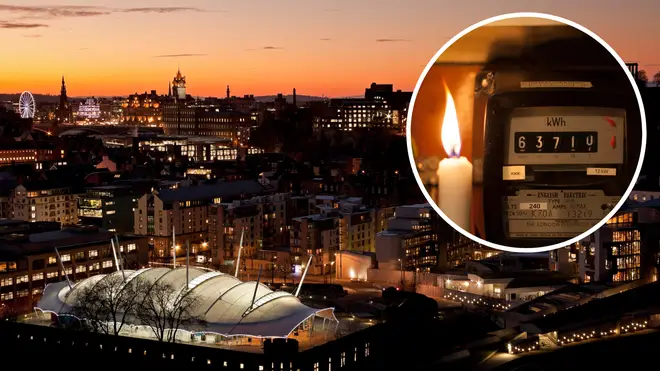
Nick Ferrari 7am - 10am
22 August 2022, 20:47 | Updated: 22 August 2022, 23:12

Households and businesses will not face blackouts this winter, Downing Street insisted as gas shipped from Australia was set to dock in the UK.
The Attalos gas tanker is set to arrive at the Isle of Grain terminal in Kent, by the mouth of the Thames, later on Monday - believed to be the first cargo of liquified natural gas (LNG) sent from Australia to Europe in six years.
The squeeze on gas supplies in Europe has helped fuel rocketing inflation and driven up household bills, with analysts expecting the energy price cap to rise to £3,554 in October.
But No 10 insisted that there was no risk to UK energy supplies and consumers should not panic.
Some of the gas on that Attalos is likely to be used in the UK straight away, but much of it will probably flow to Europe through the pipelines that connect Britain to the continent.
There it might be channelled into European gas storage sites and some of it could return to Britain during winter.
Read more: Energy bills forecast to skyrocket to more than £5,300 a year in April's price cap

James O'Brien has eyes opened to people who don't have energy to follow cost of living
Concerns that shortages on the continent could jeopardise the supply of gas back to the UK were played down by No 10, which highlighted both North Sea production and the use of "reliable partners" such as Norway in ensuring homes could be heated and the lights kept on over the winter.
The UK has some of the highest LNG import capacity in Europe, but it has very little gas storage.
Therefore, much of the LNG that comes to Europe this summer will arrive in British ports, but be shipped over to European storage sites.
A No 10 spokeswoman said: "Households, businesses and industry can be confident they will get the electricity and gas that they need over the winter.
"That's because we have one of the most reliable and diverse energy systems in the world."
She said people should not panic or feel they should cut down on energy use.
Read more: Brits to get paid for using washing machine less in plan to stop winter blackouts
"These decisions, in terms of energy consumption, remain decisions for individuals," she said. "But what I'm saying is that households, businesses and industry can be confident that they will have the electricity and gas that they need."
But No 10 backed a plan being developed the National Grid Electricity System Operator (ESO) which could see households with smart meters being paid for turning off high-energy appliances such as washing machines during peak times to reduce the risk of blackouts this winter.
"We support the National Grid in developing all options which could benefit consumers and help to reduce bills by spreading out peak demand," the spokeswoman said.
Ahead of Ofgem's announcement of an increased energy cap, due on Friday, Chancellor Nadhim Zahawi will meet bosses from generating firms including Orsted, Newcleo and RWE to discuss what more the industry can do to ensure markets function effectively for consumers.
Read more: Inflation to hit 18% in January as fears grow over worsening cost of living crisis
The Attalos departed from Malaysia on July 20, according to data from Vessel Finder.
It had picked up a shipment of gas that had come from Australia, according to commodity experts at Kpler.
The Attalos is expected to dock on Monday evening. Because of the long distances involved, it is rare for Australian gas to find its way to Europe. Most instead goes to countries in Asia.
But the deep gas crisis that Europe is currently facing has catapulted the need for new sources of the fossil fuel.
Gas prices have soared in the last year, and the UK price for delivery next month was up another 17% on Monday morning, hitting £5.40p per therm.
Consultants Cornwall Insight forecasts that Friday's energy price cap rise would see a typical household paying the equivalent of £3,554 per year, with a further increase expected in January.